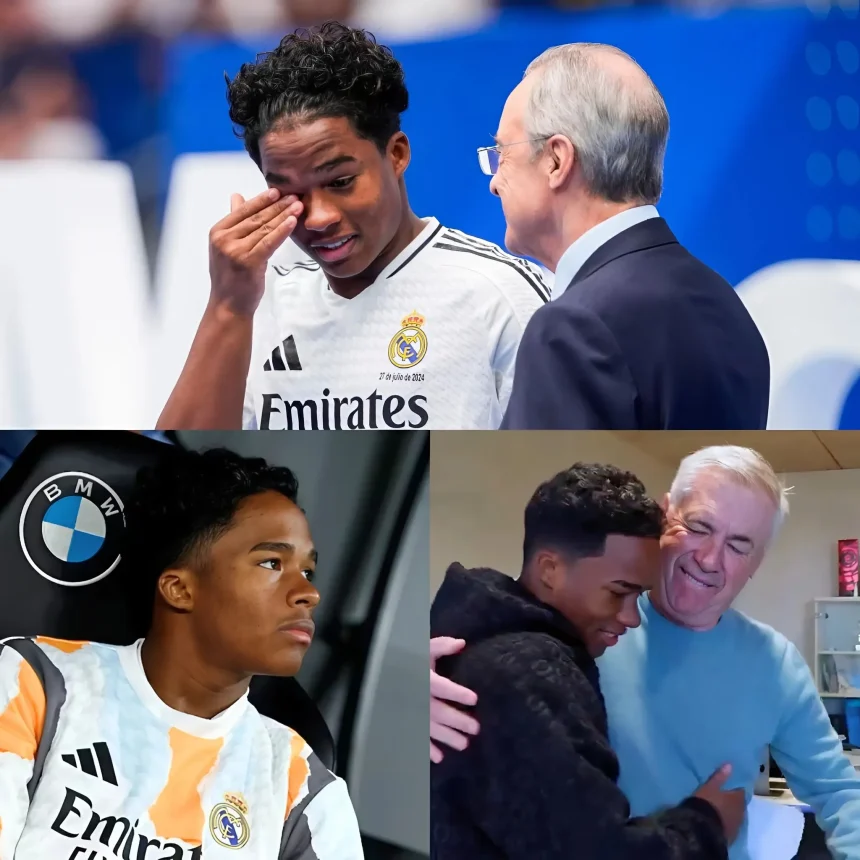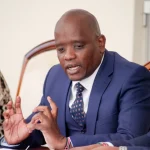Endrick Felipe’s journey to Real Madrid was meant to be a fairytale. A teenage prodigy, dubbed the “next big thing” from Brazil, carrying the weight of comparisons to legends like Ronaldo Nazário and Pelé. Yet, behind the glamorous headlines and million-dollar transfer, there was a quieter, more complex reality unfolding at the Bernabéu — Endrick wasn’t just standing out for his skills on the pitch, but also for how drastically different he was off it.
According to reports circulating within the Madrid locker room, Endrick’s intense discipline and unwavering principles may have unintentionally created a wall between him and some of his teammates. His lifestyle choices — admirable to many — left some of his peers bewildered.
While other young stars occasionally enjoyed nightlife and social gatherings around Madrid, Endrick stayed away from all of it. He didn’t go to bars. He didn’t attend team parties. And even when beautiful girls approached him, he respectfully declined every single time. It wasn’t arrogance, insiders say — it was focus.
Nicknames often serve as mirrors of perception in football dressing rooms. And in Endrick’s case, one name quietly gained popularity among some of his Real Madrid colleagues: “Padre Endrick,” meaning “Father Endrick.” Not because he preached or judged, but because he exuded a mature, monk-like presence that made him feel more like a wise elder than a 17-year-old football star.
It’s unusual for a teenager, especially one from Brazil — a country known for its flair and expressive culture — to exhibit such monastic restraint. But that’s exactly who Endrick is. Raised in a deeply religious household, his values were shaped long before his fame. While most boys his age were still finding themselves, Endrick had already drawn his boundaries.
“He was too good,” one teammate allegedly remarked during a private conversation. “He just doesn’t give in to anything. It’s like he’s not even tempted.” And that, paradoxically, is what made it hard for others to relate to him.
It’s important to clarify — Endrick wasn’t disliked. Far from it. His teammates respected his talent, his humility, and his commitment to the badge. But in a squad filled with different cultures, languages, and personalities, he often came off as distant. He wasn’t part of the WhatsApp banter groups. He rarely stayed long after training. Some took it as shyness; others interpreted it as a silent declaration of superiority.
The isolation wasn’t imposed on him. In fact, the coaching staff tried to help him blend in. Veteran players like Dani Carvajal and Luka Modrić occasionally spoke with him, trying to guide him through the whirlwind of Real Madrid life. But even they recognized that Endrick was wired differently.
His dedication to his craft was unmatched. First to arrive at training, last to leave. When others went to team dinners, he hit the recovery pool. When some traveled on rest days, he watched match footage. His life revolved around becoming great, and that tunnel vision — while admirable — had its social consequences.
There were even quiet jokes within the camp that Endrick might one day become a pastor instead of a Ballon d’Or winner. “He acts like a saint,” one source chuckled, “which is crazy because he’s built like a beast on the pitch.”
But being “too good” didn’t mean being disconnected from the game. On matchdays, Endrick brought fire. He celebrated wildly, motivated his peers, and even comforted older teammates after defeats. It was during those moments that the squad saw glimpses of his emotional depth and leadership potential.
Despite the whispers and the nickname, Endrick’s reputation among the coaching staff only grew stronger. They saw in him not just a future star, but a future captain. Someone who could set the tone, both in discipline and performance. For a club like Real Madrid — with a culture of excellence — that kind of profile is gold.
In recent weeks, his social circle has slowly expanded. He’s begun opening up to a few teammates, finding common ground through music and gaming rather than parties. His quiet confidence is starting to resonate, especially with younger players looking for a role model.
And while the “Padre Endrick” label may stick as a joke, it might also evolve into something more meaningful — a symbol of integrity, focus, and purpose. After all, Real Madrid doesn’t just build footballers; it builds icons. And icons, more often than not, are the ones who dare to be different.
Endrick may have been isolated at first, but now, the isolation is transforming into identity. He’s not trying to fit in — he’s creating his own space. And in that space, he’s preparing to become something bigger than just another transfer headline.
In a world where young stars often crumble under pressure or lose their way in temptation, Endrick’s “isolation” might be his greatest strength. It’s the calm before the rise. And Madrid is starting to see just how valuable “too good” really is.



